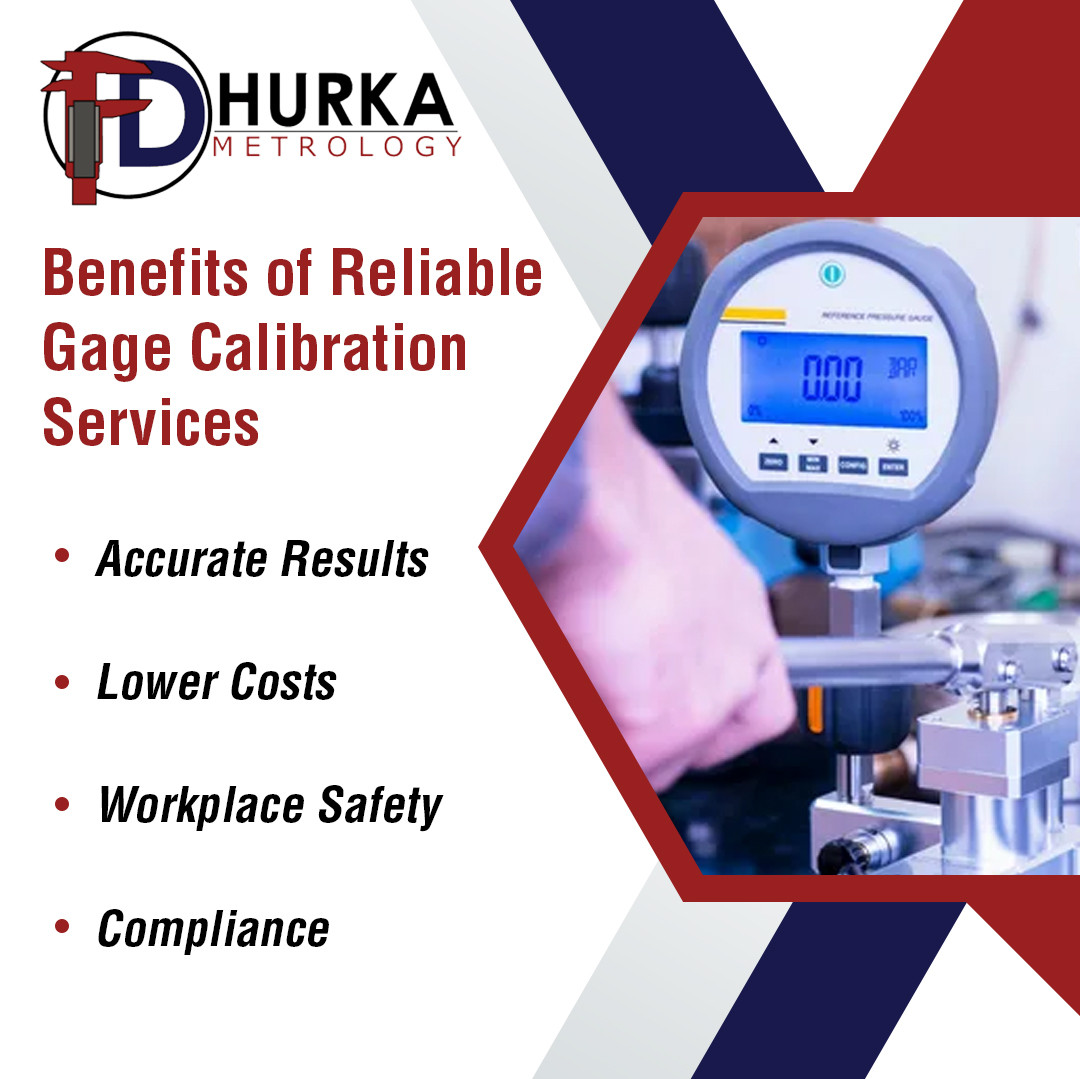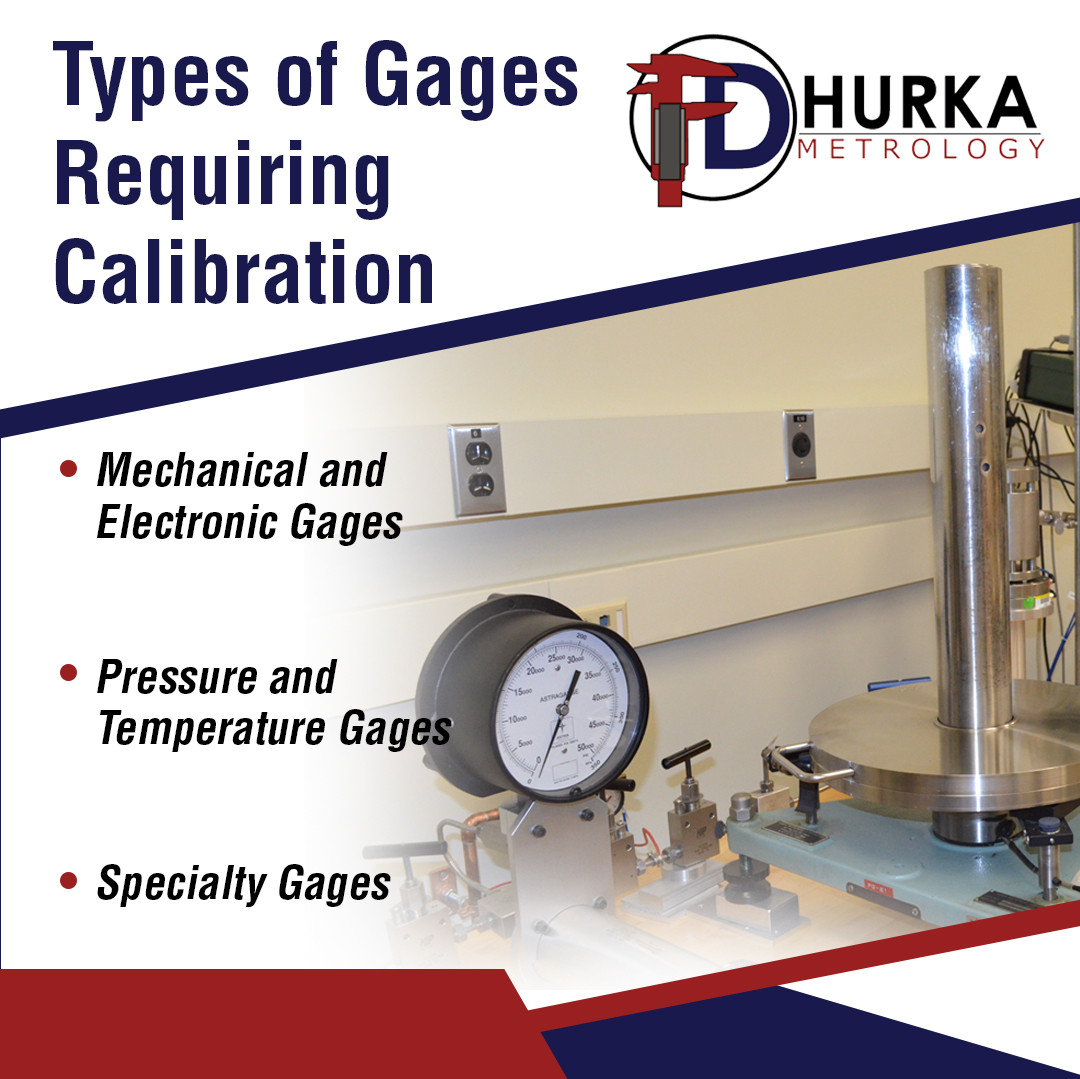Precision Matters: Calibration for Gages of Different Types
Charlotte, United States - July 10, 2025 / F D Hurka Metrology /
Charlotte, NC — Accurate measurement tools are vital in industries where quality and consistency matter. Gage calibration ensures tools meet standard references, helping prevent defects, rework, and safety issues. Regular calibration reduces the risk of deviations, failed audits, and delays, keeping operations efficient and compliant. F. D. Hurka Metrology in Charlotte, NC, supports this need with reliable calibration services trusted by industries across North Carolina.
Types of Gages Requiring Calibration
Mechanical and Electronic Gages
Mechanical gages like calipers and dial indicators are commonly used for dimensional measurements. These tools need regular checks to confirm that the moving parts still work correctly. Electronic gages, such as digital micrometers, also require calibration to verify sensor accuracy and battery performance.
Pressure and Temperature Gages
Gages used to measure pressure and temperature are vital in many systems. They must be calibrated to match reference standards, especially after they’ve been exposed to extreme conditions. Inaccurate readings could lead to equipment damage or unsafe working conditions.
Specialty Gages
Certain industries use tools made for unique measurements. These specialty gages, often found in aerospace or automotive applications, demand high precision. Calibration helps make sure they meet strict industry-specific standards.
Gage Calibration Near You: How Often Should It Be Done?
Calibration schedules vary based on the tool type, frequency of use, and working environment. A micrometer used daily in a high-traffic production area might need calibration every six months, while a rarely used gauge could go a year between checks. Pressure and temperature gages often follow an annual schedule unless there’s a reason to recalibrate earlier, such as after a drop or exposure to extreme heat.
Some signs that a gage needs recalibration include:
Unexpected shifts in measurement
Failed inspections or audits
Physical damage, such as rust or worn parts
Inconsistent readings between users
Recent shocks or drops
Comprehending the Gage Testing and Calibration Process
Step-by-Step Approach
Visual Check: Before anything else, the gage is inspected for wear, rust, or damage.
Measurement Test: The tool is tested against known standards.
Adjustment: If readings are off, the tool is adjusted to meet required tolerances.
Verification: The tool is retested to confirm it now measures correctly.
Documentation: Results are recorded for quality and compliance records.
Proper documentation helps with audit readiness and future calibration tracking.
Calibration Services in NC: What to Look For
When searching for gage calibration near you, it helps to choose a provider that meets both quality and service standards. In North Carolina, F. D. Hurka Metrology offers a reliable choice for businesses that need precise calibration.
Here’s what to check before selecting a calibration partner:
ISO/IEC 17025 Accreditation: This shows that the lab follows international calibration standards.
Industry Experience: Providers familiar with your sector will better understand specific tool requirements.
Flexible Services: Whether you need on-site or lab-based calibration, the provider should accommodate your workflow.
Customer Support: Ongoing communication matters—especially when timing and clarity affect operations.
Quick Turnaround: Calibration shouldn’t cause long production delays. A fast, accurate service helps avoid downtime.
Using Technology for Better Calibration
New tools are helping calibration providers improve service quality. Automated systems can increase precision by reducing human error, while software tools make it easier to manage schedules, records, and compliance reports.
Data analytics also plays a growing role. By analyzing calibration trends, providers can help clients spot early signs of tool drift or wear. These insights can lead to better maintenance planning and fewer unexpected issues.
Benefits of Reliable Gage Calibration Services
Working with a trusted calibration service brings several business advantages:
Accurate Results: Helps maintain product quality and meet standards.
Lower Costs: Reduces scrap and rework from incorrect measurements.
Workplace Safety: Prevents incidents that could arise from faulty readings.
Compliance: Meets industry or regulatory calibration requirements.
Routine calibration of gages supports overall operational stability. When measurement tools are accurate, businesses can focus on production without worrying about failures in quality checks or audits.
F. D. Hurka Metrology: A Trusted Name in NC
Based in Charlotte, F. D. Hurka Metrology offers reliable calibration services in NC to businesses across industries. From mechanical gages to temperature sensors and pressure tools, the team follows strict calibration processes and records each step for full traceability.
For manufacturers and engineers looking for gage calibration near you, F. D. Hurka provides a practical solution that supports long-term accuracy. Their lab meets ISO/IEC 17025 standards, and their service approach focuses on clear communication, reliable turnaround, and a commitment to customer satisfaction.
Contact F. D. Hurka Metrology for Calibration Services in NC
Contact them today for more information about their gage testing and calibration offerings. Whether you need annual calibration or immediate support for an out-of-spec gage, F. D. Hurka Company is equipped to help.

Contact Information:
F D Hurka Metrology
4731 Stockholm Ct
Charlotte, NC 28273
United States
Charles Meredith
https://www.fdhurka.com/
Original Source: https://www.fdhurka.com/calibration/precision-matters-calibration-for-gages-of-different-types/



